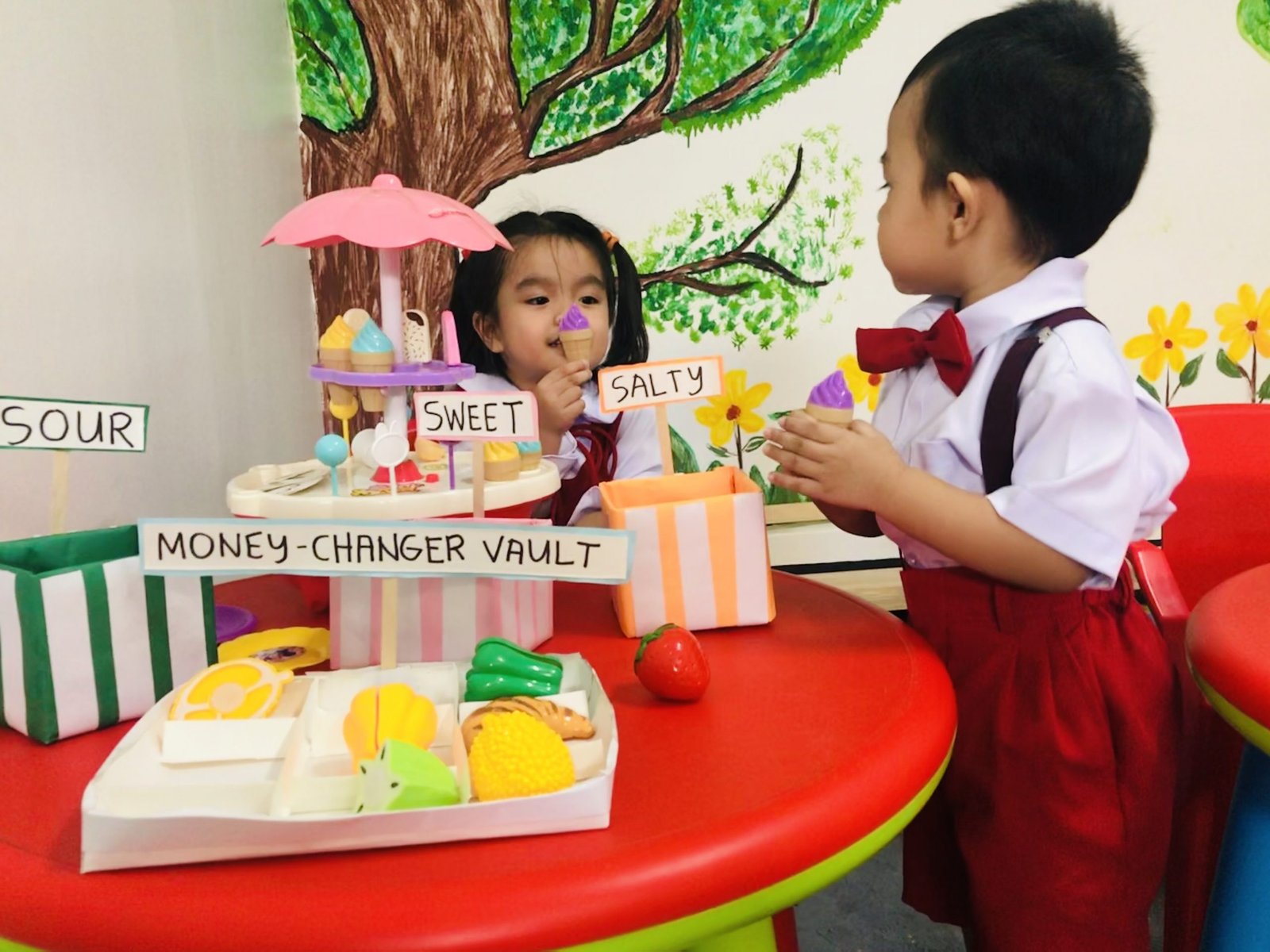We aim to develop the children’s academic understanding, as well as, understanding of themselves as individuals. For this reason, we focus on nurturing the ‘whole child’ including their personal, social, emotional, physical and creative development.
The underpinning principles of the EYFS which we embrace are:
- Each child is UNIQUE and is a competent learner from the time they are born.
- Children learn best when they have POSITIVE RELATIONSHIPS with their parents, teachers and carers.
- As educators it is our responsibility to create ENABLING ENVIRONMENTS which support each child’s development and training.
- Each child’s LEARNING DEVELOPMENT is unique, they learn, grow at different rates and ways in each area.
We facilitate the children’s learning through direct experience and meaningful, multisensory play; adult-led or adult-initiated and oftentimes child-led. We also have structured one-on-one or small group learning activities with the lead teacher such as Phonics in Reading and Mathematics. These methodologies are used to nurture the ‘whole child’ interlinking the Seven Learning Areas.
7 Learning Areas
- Personal, Social & Emotional Development
- Physical Development
- Communication and Language
- Literacy
- Mathematics
- Understanding the World
- Expressive Arts and Design
Here are the development statements for Nursery children based on the EYFS framework adapted by Wesley Primrose to appropriately fit to Filipino children. Please note that this should only be used as a guide and not as a checklist. In Nursery classes, children are put in an enabling environment with open-ended resources and play to learn to:
Personal, Social & Emotional Development
- show affection and concern for people who are special to them
- form a special friendship with another child
- able to separate from main caregiver with support and encouragement from a familiar adult
- respond to the feelings and wishes of others.
Physical Development
- begin to show preference for dominant hand
- begin to use three fingers (tripod grip) to hold writing tools
- help with clothing, e.g. puts on hat, unzips zipper on jacket, takes off unbuttoned shirt.
Communication and Language
- show interest in play with sounds, songs and rhymes
- understands more complex sentences, e.g. ‘Put your toys away and then we’ll read a book’
- hold a conversation, jumping from topic to topic
- learn new words very rapidly and being able to use them in
communicating.
Literacy
- have some favourite stories, rhymes, songs, poems or jingles
- repeat words or phrases from familiar stories
- distinguish between the different marks they make.
Mathematics
- begin to make comparisons between quantities
- know that a group of things changes in quantity when something is added or taken away
- begin to categorise objects according to properties such as shape or size.
Knowledge and Understanding the World
- in pretend play, imitate everyday actions and events from own family and cultural background, e.g. making and drinking tea
- enjoy playing with small-world models such as a farm, a garage, or a train track.
Expressive Arts and Design
- show an interest in the way musical instruments sound
- experiment with blocks, colours and marks
- use representation to communicate, e.g. drawing a line and saying ‘That’s me’
- begin to make believe by pretending.
We will be happy to answer any questions about our Nursery curriculum or discuss your child’s specific development needs at this stage.
